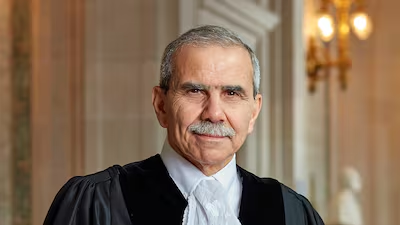
Nawaf Salam has served as a judge at the International Court of Justice since 2018. Photo: ICJ
Nawaf Salam has served as a judge at the International Court of Justice since 2018. Photo: ICJ
Lebanese judge Nawaf Salam takes on 'heavy task' as head of ICJ
Former academic and diplomat, in interview with The National, discusses his advocacy of political reform in his home country

